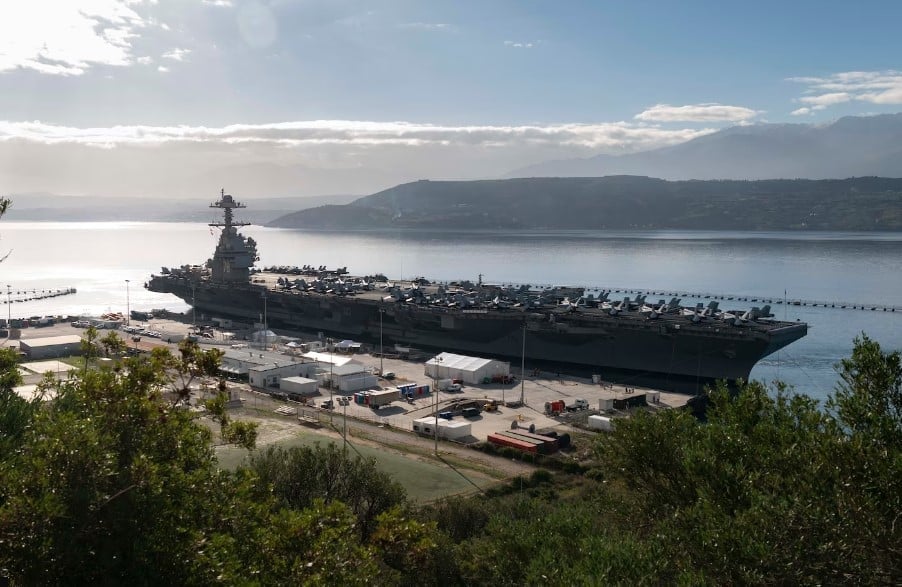

Authorities in Crete have arrested a 26-year-old man on espionage charges, accusing him of photographing military airbases, ships, and their movements in Souda Bay.
This arrest takes on particular significance given Souda Bay’s critical strategic role for the United States and NATO in the Eastern Mediterranean, especially amid the ongoing conflict with Iran.
The individual, an Azerbaijani citizen of Iranian origin holding a Polish passport, was reportedly in Greece legally. His arrest, made possible by intelligence from the National Intelligence Service, occurred on, Sunday. He is expected to appear before the Prosecutor’s Office.
Souda Bay, a joint Greek and NATO naval base with a substantial U.S. presence, serves as a vital hub for projecting power and ensuring stability across Europe, Africa, and Central Command areas of responsibility.
Its deep-water port and all-weather airfield are crucial for supporting U.S. naval operations, including carrier strike groups, and air mobility.
In the context of the escalating conflict with Iran, the base’s role in deterrence, logistics, and intelligence gathering in the region is paramount. Recent reports even indicated the potential transfer of Patriot missile defense systems to Souda Bay as a precautionary measure to protect U.S. assets.
The Hellenic Police confirmed the arrest, stating a case for espionage has been filed against him, and he is being brought before the competent prosecution authority. Authorities are investigating the case with “particular care.”
The government expressed its strong concern, government spokesman Pavlos Marinakis said after the extraordinary meeting of the Government Council for National Security (KYSEA) on Sunday, in which the latest developments in the Middle East were assessed.
According to the statement, what is most important is to demonstrate self-restraint and resume discussions in order to avoid further escalation.
The government reiterated that Greece’s consistent position is that Iran should not acquire nuclear weapons and that the solution to this issue must be sought through diplomacy and reaffirmed that our country’s priority remains the security of its citizens in the region.
The same announcement emphasized that the government, through the Ministry of Maritime Affairs and Insular Policy, has taken the necessary actions to provide the shipping community with recommendations until the situation normalizes.
Finally, it was emphasized that the Greek authorities remain vigilant at all levels to address the effects of a complex and uncertain geopolitical situation.
What comes first today is “to show self-restraint and restart talks. Further escalation will create even greater conditions of instability in an already highly burdened region,” said Prime Minister Kyriakos Mitsotakis.
Commenting on the early morning US attack on underground nuclear facilities in Iran, Mitsotakis said that this issue would be discussed at the NATO Summit in The Hague (June 24-25) and the European Council in Brussels (June 26-27) this coming week. “Europe ought to rise to the occasion, to the benefit of global peace and prosperity,” he added.
Related: Souda Bay and F-35s: Hegseth Highlights Deepening US-Greece Defense Ties
